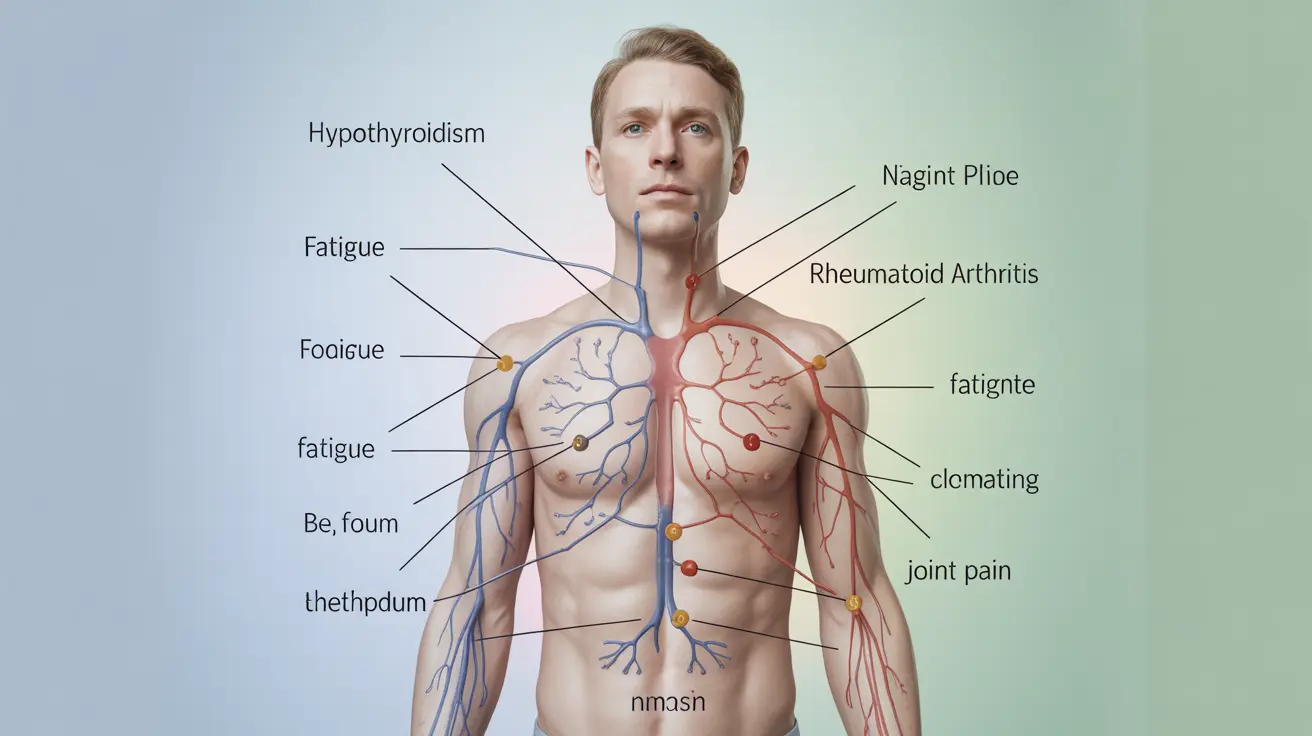Living with either hypothyroidism or rheumatoid arthritis can be challenging, but when these conditions occur together, they present unique complications and considerations for both patients and healthcare providers. Understanding the relationship between these two autoimmune conditions is crucial for proper diagnosis and effective treatment.
Recent research has shown that people with rheumatoid arthritis have a higher likelihood of developing thyroid problems, particularly hypothyroidism. This connection demands special attention from healthcare providers and patients alike to ensure comprehensive care and optimal management of both conditions.
The Overlapping Symptoms
One of the most challenging aspects of having both hypothyroidism and rheumatoid arthritis is that these conditions share several common symptoms, which can complicate diagnosis and treatment. Key overlapping symptoms include:
- Fatigue and reduced energy levels
- Joint pain and stiffness
- Muscle weakness
- Depression and mood changes
- Weight fluctuations
- Temperature sensitivity
The Autoimmune Connection
Both hypothyroidism (particularly Hashimoto's thyroiditis) and rheumatoid arthritis are autoimmune conditions, where the body's immune system mistakenly attacks healthy tissues. This shared autoimmune nature helps explain why these conditions often co-occur:
- Genetic predisposition to autoimmune disorders
- Common inflammatory pathways
- Shared risk factors
- Similar environmental triggers
Diagnostic Challenges and Solutions
Diagnosing hypothyroidism in patients with rheumatoid arthritis requires careful attention to detail and specific testing protocols. Healthcare providers typically recommend:
- Comprehensive thyroid function tests (TSH, T3, T4)
- Anti-thyroid antibody testing
- Regular monitoring of thyroid function
- Detailed symptom tracking
- Careful documentation of medication responses
Managing Both Conditions Effectively
Treatment strategies for patients with both conditions must be carefully coordinated to ensure optimal outcomes. Key management approaches include:
- Individualized medication schedules
- Regular monitoring of both conditions
- Lifestyle modifications
- Dietary considerations
- Coordination between rheumatologists and endocrinologists
Frequently Asked Questions
What are the common symptoms shared by hypothyroidism and rheumatoid arthritis that might make diagnosis difficult?
Common symptoms include joint pain, fatigue, muscle weakness, and depression. These overlapping symptoms can make it challenging to determine which condition is causing specific symptoms, highlighting the importance of comprehensive testing and evaluation.
How does having rheumatoid arthritis increase the risk of developing hypothyroidism?
Rheumatoid arthritis and hypothyroidism share common autoimmune mechanisms. The presence of one autoimmune condition can increase the likelihood of developing another due to similar genetic predispositions and immune system dysfunction.
What tests are recommended to diagnose hypothyroidism in patients with rheumatoid arthritis?
Doctors typically recommend comprehensive thyroid function tests, including TSH, free T3, and free T4 levels. Additional testing may include thyroid antibody tests to identify autoimmune thyroid disease specifically.
How is hypothyroidism treated in someone who also has rheumatoid arthritis, and can treatment improve joint symptoms?
Treatment typically involves thyroid hormone replacement therapy (usually levothyroxine) alongside ongoing RA management. Proper treatment of hypothyroidism can indeed improve joint symptoms by reducing inflammation and improving overall energy levels.
Why is regular thyroid screening important for people living with rheumatoid arthritis?
Regular thyroid screening is crucial because RA patients have a higher risk of developing thyroid problems. Early detection allows for prompt treatment, preventing complications and improving overall health outcomes.
Managing both hypothyroidism and rheumatoid arthritis requires vigilant monitoring and coordinated care between healthcare providers. With proper attention and treatment, patients can effectively manage both conditions and maintain a good quality of life.




